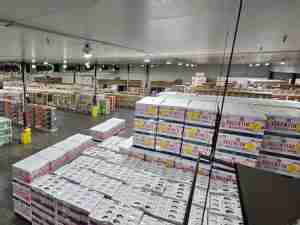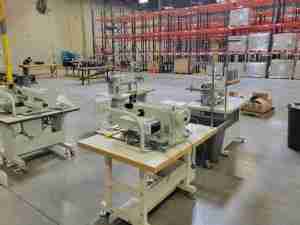'The logistics and freight forwarding industry today faces unique challenges due to global economic instability,' she says. 'However, the industry has many dynamic execution technologies and IT initiatives available that can help alleviate a company's business jeopardy. Not all shippers and freight forwarders, however, are taking advantage of the stabilizing benefits provided by sales and operational technologies that can provide IT optimization platforms across extended supply chains. Establishing a single, robust cross-departmental IT solution across all business functions within a company can play a significant role in minimizing the degree of economic risk a company absorbs in unstable economic times ' and it can be done at a reasonable cost with long-term results.'
Ms. Tree suggests that due to the number of available IT options, it's not unusual for company management to be uncertain about which IT platform best fits its unique supply chain requirements. 'Often finding the right IT solution includes just making the decision whether to build an IT platform in-house or outsource the functions to an expert software solution provider. Making these decisions requires proficient leadership skills with the capacity to identify, implement, communicate and manage the objectives necessary to optimize the comprehensive IT operating platform that is put into place to maximize an organization's operating efficiency.'
Tree says that a company's cultural configuration, especially as it relates to its business model and cross-departmental communications, can play a significant role in ensuring a positive impact on a company's expenditures and ROI in uncertain economic conditions. 'If a company's corporate traditions support a commitment and budget that maximizes optimal supply chain solutions for its customers, the successful management of operations as it relates to sales and operations can steer clear of being mired in cross-departmental inefficiencies and confusion. Successful company operations are driven by a dynamic leadership that understands that optimizing supply chain management and visibility through IT solutions plays a critical role in creating short-term and long-term sales and ROI results. And, implementing the right enterprise software platform is especially important during times of economic uncertainty.
'Companies are more likely to ensure a successful IT-driven sales and management operation by methodically examining the status of their existing IT capabilities,' says Tree. 'If a company does not have adequate in-house IT capabilities to enable supply chain maximization on a global basis, it is less likely to offer an operating platform that meets customers' supply chain requirements consistently.' If this is the case, the company should outsource its cross-departmental business functions to an appropriate enterprise provider that can provide a single, robust IT solution in order to alleviate the risks of market uncertainties and gain the necessary logistics solutions that drive the business through good times and bad. An outsourced global IT operation is generally less expensive and more effective than incurring the ongoing costs and complexity of trying to revise an outdated legacy system in-house.'
Due to the fluid nature of today's global economy, outsourcing execution software technology to a qualified enterprise solution provider can often not only produce better internal sales and management results, but it can greatly expedite the supply chain process and produce better results for customers through the careful monitoring of metrics, suggests Tree.
'Understanding your company's global supply chain requirements, which can change with the global business environment, requires a thoro









